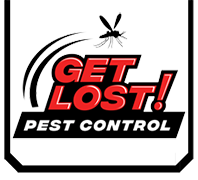Mastering Pest Management: A Comprehensive Guide to Professional Fly Control
Introduction
Flies are unwelcome guests in any environment, be it residential, commercial, or industrial. Their presence not only disrupts daily routines but also poses health risks due to their role as disease vectors. In professional settings, effective fly control is essential not only for hygiene but also for the reputation and well-being of the business. In this comprehensive blog, we will explore the world of professional fly control, from understanding the types of flies to implementing strategies that ensure a fly-free environment. Get Lost Pest Control is your local Star fly control company that has the tools and knowledge to help.
The Pervasive Pests: Types of Flies
Before diving into control strategies, it’s crucial to understand the various types of flies commonly encountered in professional settings:
1. Houseflies (Musca domestica)
Houseflies are ubiquitous pests known for their small size, bristly bodies, and red compound eyes. They are commonly found in homes, restaurants, and food processing facilities, making them a primary target for professional fly control.
2. Fruit Flies (Drosophila spp.)
Fruit flies are tiny insects that infest fruit and vegetable storage areas, bars, and restaurants. They are attracted to fermenting substances and can quickly become a nuisance.
3. Drain Flies (Psychodidae)
Drain flies thrive in damp environments, particularly near drains and sewage systems. They are known for their fuzzy appearance and are often found in commercial kitchens and restroom facilities.
4. Blowflies (Calliphoridae)
Blowflies, also known as blue or green bottle flies, are attracted to decaying organic matter. They are commonly found in outdoor areas and can be a concern for businesses with outdoor seating.
5. Cluster Flies (Pollenia spp.)
Cluster flies are often mistaken for houseflies but have a different behavior. They tend to seek shelter indoors during the winter months, clustering in attics and wall voids.
The Importance of Professional Fly Control
Why is professional fly control crucial for businesses? Here are some compelling reasons:
1. Health and Safety
Flies are known vectors of diseases such as Salmonella, E. coli, and various foodborne illnesses. Controlling flies in food establishments is essential to prevent food contamination and protect public health.
2. Compliance with Regulations
Many industries, particularly those related to food handling and healthcare, are subject to strict hygiene and sanitation regulations. Failing to comply with these regulations can lead to fines, closures, or legal consequences.
3. Customer Satisfaction
A fly-infested environment can lead to customer dissatisfaction and damage a business’s reputation. Maintaining a clean and pest-free space is essential for customer retention.
4. Employee Morale
Employees working in a fly-infested environment may become demotivated, leading to decreased productivity and morale. Providing a fly-free workspace is essential for employee well-being.
Professional Fly Control Strategies
Now, let’s delve into effective strategies for professional fly control:
1. Inspection and Identification
The first step in professional fly control is a thorough inspection to identify the fly species, breeding sites, and entry points. Understanding the specific fly problem is essential for targeted control measures.
2. Sanitation
Maintaining impeccable sanitation is the foundation of fly control. Here’s what it entails:
- Cleanliness: Regular cleaning of all areas, especially kitchens, food storage areas, and garbage disposal areas, is crucial.
- Waste Management: Proper disposal of waste, including sealing trash cans and cleaning garbage bins, prevents flies from accessing breeding sites.
- Drain Maintenance: Keeping drains clean and unclogged eliminates breeding sites for drain flies.
3. Exclusion
Preventing flies from entering the premises is essential. This can be achieved through:
- Screening: Installing window and door screens to keep flies out while allowing ventilation.
- Sealing Entry Points: Identifying and sealing gaps, cracks, and openings in walls and doors that flies can use as entry points.
4. Traps and Baits
Professional fly control often involves the use of traps and baits:
- Fly Traps: Electric fly zappers and sticky fly traps can be strategically placed to attract and capture flies.
- Fly Baits: Commercial fly baits can be used in fly-prone areas to lure and eliminate flies.
5. Chemical Control
In severe infestations, chemical control methods may be necessary. These include:
- Insecticides: Professional-grade fly sprays and aerosols designed for indoor use can help eliminate flies.
- Outdoor Pest Control: Hiring professionals for outdoor treatments can target breeding sites and prevent fly infestations.
6. Integrated Pest Management (IPM)
IPM is a holistic approach that combines various strategies to control flies effectively. It focuses on long-term prevention and sustainable solutions while minimizing the use of chemicals.
Benefits of Professional Fly Control Services
While some businesses may attempt fly control in-house, there are significant advantages to hiring professional pest control services:
1. Expertise
Professional pest control technicians have extensive knowledge and training in identifying, managing, and preventing fly infestations.
2. Customized Solutions
Experienced professionals can tailor fly control solutions to the specific needs and vulnerabilities of a business.
3. Long-Term Prevention
Professional pest control services often provide ongoing maintenance and prevention programs to ensure a fly-free environment.
4. Compliance
Professional pest control services are well-versed in industry regulations and can help businesses stay compliant with health and safety standards.
5. Peace of Mind
Knowing that fly control is in the hands of experts allows business owners to focus on their core operations without worrying about pests.
Conclusion
Professional fly control is not just a luxury but a necessity for businesses across various industries. From food safety and compliance with regulations to customer satisfaction and employee morale, the benefits of maintaining a fly-free environment are undeniable. By understanding the types of flies, implementing effective control strategies, and considering professional pest control services, businesses can ensure a clean, hygienic, and pest-free workspace. So, invest in professional Star fly control from Get Lost Pest Control to protect your business and create a safe and pleasant environment for all.







